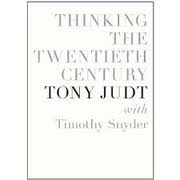 When General de Gaulle empowered the President of the 5th Republic with far-reaching executive attributes, he sought to alleviate the head of state from what he called the “grenouillages” of politics. This has worked efficiently. Yet, his intention was certainly not to avoid debate over policy-proposals and between candidates. Unfortunately, this is what is happening in the 2012 French presidential election: it has moulded into a referendum on one individual, the President. For this very reason, it seems the socialists have a very good shot at taking the Elysée. Not because they have a better project – they don’t; not because their candidate is better – he isn’t; but because Sarkozy is unpopular and because there has been little debate between the main candidates
When General de Gaulle empowered the President of the 5th Republic with far-reaching executive attributes, he sought to alleviate the head of state from what he called the “grenouillages” of politics. This has worked efficiently. Yet, his intention was certainly not to avoid debate over policy-proposals and between candidates. Unfortunately, this is what is happening in the 2012 French presidential election: it has moulded into a referendum on one individual, the President. For this very reason, it seems the socialists have a very good shot at taking the Elysée. Not because they have a better project – they don’t; not because their candidate is better – he isn’t; but because Sarkozy is unpopular and because there has been little debate between the main candidates
– if at all.
Nicolas Sarkozy may lose the election but François Hollande’s coronation would merely be the by-product of a transpiring anti-Sarkozy sentiment sweeping the country. In this respect, the campaign is failing democracy because no policy debates have taken place. I wonder, then, where is the meat? One man, the president, is running after his lost love with the people, while another man, the socialist candidate, is using this disavowal to syphon the votes of the disappointed albeit avoiding confrontation and debate. Hollande is using Sarkozy as a scapegoat to avoid policy debates – and it has worked well so far.
Nicolas Sarkozy’s so-called lavish early days in office, his omnipresence throughout his term, the de-presidentialisation of the post he embodied, the harsh crisis in the making he was handed over as he took office, and the current Bettencourt affair pertaining to campaign financing in 2007 have entrenched his rejection by a large share of the electorate. The fact he has been campaigning alone has not helped either. Nonetheless, the situation is not as bad as it seems for Sarkozy. Polls show the French trust him more than double his socialist rival in being be forceful, leading the country out of recession and implementing the right economic reforms. Furthermore, in comparison to other European incumbent governments having gone through the crisis, Sarkozy’s score is very good. Whatever the outcome on May 6th, this election will be remembered, first, as the surge of extreme parties who have swept a third of expressed votes, while the two main parties combined totalled only 56% of vote share, and, second, as a referendum on the President.
This highlights the crisis context – known as prone to favour extremes – but also that Sarkozy and Hollande both have inherent failings and cannot appeal to the vast majority of their people. Sarkozy’s main problem is himself, and he cannot change that, not even with all his energy and determination. Hollande’s main problems are the absence of a credible programme, lack of leadership, and inexperience in high-office. With all his moderation and temperance, he cannot remedy to this.

If all French presidents in the 5th Republic, including those who lost, led the first round of their attempt at reelection, no president was ever elected without ministerial experience. Moreover, as much as the French hate their elites, they also value highly charisma, poise and experience. Hollande possesses none of them. In fact, as weakened as Sarkozy is, a solid socialist candidate should have won the election by a landslide. Polls are close because Hollande is a poor pick in the socialist camp and because Sarkozy is an excellent campaigner – not the other way around. The irony is that had Sarkozy not been as
active and on the forefront of politics, he may not have stumbled.
Had Sarkozy given up on most issues and adopted a laid back position, he would not have become unpopular. Strauss-Kahn would probably have led Sarkozy in the polls, but he would have been disqualified by the Carlton affairs which would have erupted amid a raging campaign. It is pointless to rewrite history, and beyond the trickling effects of the crisis, Sarkozy’s personnality remains in sharp contrast to that of the French psyche. His proactive temperament, bold behaviour and liberal-pragmatic stances have not been well-received by the French – he is too abrasive. In contrast, Chirac was easily reelected because he infuriated nobody – he was numb.

Looking back, General de Gaulle left because he found himself in sharp disconnect with the French who had ungratefully taken him down from his pedestal. Following Pompidou, Giscard d’Estaing led an ambitious presidency but was challenged within his own camp (by no other than Chirac), and confronted an astute three-time candidate, Mitterrand. Giscard d’Estaing made key economic and social reforms but struggled for reelection in a difficult economic climate. In addition, the lingering Bokassa diamonds scandal followed him into the presidency and further hindered his chances of
success. He left in a dramatic context after 23 years of centre-right domination in French politics, almost as brutally as when General de Gaulle stepped down.
The course of Mitterrand is more difficult to evaluate. His mandates were punctuated by two divided governments with the right; he was the only socialist president under the 5th
Republic and left office in terminal phase of cancer – he is thus reverted to emphatically. Although there are no socialists to compare him to, Mitterrand certainly inspired Chirac in his tenure of office. Chirac took no memorable measures to change France and bears the responsibility of allowing the left in Matignon in 1997 and for failing to alter the dangerous course of France’s finances and unsustainable welfare, labour market and taxation models, which are currently collapsing. He was the “lazy president,” as one of his
biographers put it. His most notable decision – to not send troops to Iraq – is a case in point. It was the decision to hold back, rather than to act, which is the advice he often gave as political wisdom to his closest collaborators, including Villepin who neglected
it when tried to introduce the “contrat première embauche” to fluidise the labour market. Chirac kept the French happy by keeping things the same and was reelected. Sarkozy was elected on the basis of a “rupture” – a break up – which France dearly
needed, but specifically what the French dread! He may be removed from office, in a similar fashion to Giscard d’Estaing, this time 24 years after the socialists last won the presidency.
Should Hollande be elected, he will have to rely heavily on the so-called “elephants” of his party to assist him, and the prime minister will most likely take on an active and
powerful role. Though this is premature, based on past presidencies, unless a very strong candidate arises on the right – Fillon in 2017? – Hollande may even gain reelection because he will go back to a subdued presidency. He will use this trick because he is an intelligent, talented, politician. But, nonetheless, the persona of the statesman eludes him. Sarkozy can keep trying to fight his adversary by attacking him from different angles, but Hollande will keep vanishing into thin air. The socialist candidate avoids the
clash, fears the verve of his rival, refrains from mentioning his name, and avoids contact altogether. The reality is that Sarkozy is fighting himself before Hollande. In fact, there has never been a fight.
Heavyweights don’t fight lightweights. One debate has now been scheduled (Sarkozy is calling for three). Against all odds, it is Sarkozy who will be the challenger and need to convince. Hollande has the advantage and will certainly use it to remain on the defensive, in a position of attrition. If Sarkozy is to reverse the tide, he will have to corner Hollande and punch relentlessly until his opponent kneels down. He will have to take risks. Sarkozy certainly possesses the endurance and the intelligence to do so, but can he knock out Hollande in just one round?
Maximilien Berg is an MPhil student at Oxford University.




No Comment